第22章
We cannot even conceive how it is possible that God can create free beings; for it appears as if all their future actions, being predetermined by that first act, would be contained in the chain of natural necessity, and that, therefore, they could not be free.But as men we are free in fact, as is proved by the categorical imperative in the moral and practical relation as an authoritative decision of reason; yet reason cannot make the possibility of such a relation of cause to effect conceivable from the theoretical point of view, because they are both suprasensible.All that can be demanded of reason under these conditions would merely be to prove that there is no contradiction involved in the conception of a creation of free beings; and this may be done by showing that contradiction only arises when, along with the category of causality, the condition of time is transferred to the relation of suprasensible things.This condition, as implying that the cause of an effect must precede the effect as its reason, is inevitable in thinking the relation of objects of sense to one another; and if this conception of causality were to have objective reality given to it in the theoretical bearing, it would also have to be referred to the suprasensible sphere.But the contradiction vanishes when the pure category, apart from any sensible conditions, is applied from the moral and practical point of view, and consequently as in a non-sensible relation to the conception of creation.
The philosophical jurist will not regard this investigation, when thus carried back even to the ultimate principles of the transcendental philosophy, as an unnecessary subtlety in a metaphysic of morals, or as losing itself in aimless obscurity, when he takes into consideration the difficulty of doing justice in this inquiry to the ultimate relations of the principles of right.
29.The Rights of the Parent.
From the duty thus indicated, there further necessarily arises the right of the parents to the management and training of the child, so long as it is itself incapable of making proper use of its body as an organism, and of its mind as an understanding.This involves its nourishment and the care of its education.This includes, in general, the function of forming and developing it practically, that it may be able in the future to maintain and advance itself, and also its moral culture and development, the guilt of neglecting it falling upon the parents.All this training is to be continued till the child reaches the period of emancipation (emancipatio), as the age of practicable self-support.The parents then virtually renounce the parental right to command, as well as all claim to repayment for their previous care and trouble; for which care and trouble, after the process of education is complete, they can only appeal to the children, by way of any claim, on the ground of the obligation of gratitude as a duty of virtue.
From the fact of personality in the children, it further follows that they can never be regarded as the property of the parents, but only as belonging to them by way of being in their possession, like other things that are held apart from the possession of all others and that can be brought back even against the will of the subjects.
Hence the right of the parents is not a purely real right, and it is not alienable (jus personalissimum).But neither is it a merely personal right; it is a personal right of a real kind, that is, a personal right that is constituted and exercised after the manner of a real right.
It is therefore evident that the title of a personal right of a real kind must necessarily be added, in the science of right, to the titles of real right and personal right, the division of rights into these two being not complete.For, if the right of the parents to the children were treated as if it were merely a real right to a part of what belongs to their house, they could not found only upon the duty of the children to return to them in claiming them when they run away, but they would be then entitled to seize them and impound them like things or runaway cattle.
TITLE III.Household Right.(Master and Servant)30.Relation and Right of the Master of a Household.
The children of the house, who, along with the parents, constitute a family, attain majority, and become masters of themselves (majorennes, sui juris), even without a contract of release from their previous state of dependence, by their actually attaining to the capability of self-maintenance.This attainment arises, on the one hand, as a state of natural majority, with the advance of years in the general course of nature; and, on the other hand, it takes form, as a state in accordance with their own natural condition.They thus acquire the right of being their own masters, without the interposition of any special juridical act, and therefore merely by law (lege); and they owe their parents nothing by way of legal debt for their education, just as the parents, on their side, are now released from their obligations to the children in the same way.Parents and children thus gain or regain their natural freedom; and the domestic society, which was necessary according to the law of right, is thus naturally dissolved.